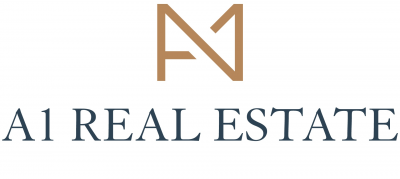
Hôtel vs appart-hôtel vs appartement meublé : quelle option pour un séjour de 3 à 12 mois à Paris ?
Summary-
1 - What do owners need to know?
2 - What do tenants need to know?
The end of a furnished rental lease marks a crucial step in the rental relationship. Whether you're a landlord or a renter, understanding the restitution process is key to ensuring a smooth transition and avoiding costly misunderstandings. This article takes a close look at the key aspects of the furnished property return process, providing practical advice for both parties involved.
What do homeowners need to know?
The restitution process often begins with an exit inventory . Owners should carry out a detailed inspection of the furnished property, noting any damage or normal wear and tear. It is advisable to document the condition of each piece of furniture, appliance and accessories included in the rental.
Before moving in, provide tenants with a detailed list of allfurniture and equipment included in the rental. This avoids misunderstandings about what needs to be returned.
If basic supplies such as cooking utensils, bedding, or towels are provided, make sure they are in good condition and replace them if necessary.
Make any necessary repairs before the tenant arrives. This minimizes the risk of litigation at the end of the lease.
Make sure the rental agreement clearly stipulates the terms of return, including cleaning obligations, rental repairs, and the process for returning the security deposit.
If damage has been caused during the rental, the landlord may withhold a portion of the security deposit to cover necessary repairs. It is important to note that only damage in excess of normal wear and tear can be deducted.
According to local law, landlords have a specific deadline to return the security deposit to the tenant after the end of the lease. Be sure to meet these deadlines and provide a detailed justification for any deductions.
Landlords must refund the security deposit as soon as possible after the end of the lease. This practice builds trust with tenants and strengthens a positive rental relationship.
Maintain transparent communication with the tenant throughout the process. Inform them of the next steps, any deductions from the security deposit, and provide detailed explanations in case of disputes.
What do tenants need to know?
Tenants should also take part in the check-out inventory. This allows them to discuss any disagreements regarding the condition of the property and provide justifications for normal wear and tear.
If you are a tenant and donot wish to renew your lease, send a notice letter in accordance with the terms of the contract. This gives the landlord enough time to find new tenants.
Make sure the property is returned in a clean and well-maintained condition. This includes cleaning common areas, returning keys, and complying with any other specific agreements mentioned in the rental agreement.
If minor repairs are needed, let the owner know as soon as possible. This can help avoid large deductions from the security deposit and allow the owner to resolve issues before the check-out inventory.
Tenants have the right to receive their security deposit within the time limits specified by law. In case of deductions, ask the owner for a detailed justification and contest any unjustified deductions.
In conclusion, the process of returning a furnished property requires close collaboration between owners and tenants. Transparency, detailed documentation, and compliance with legal deadlines are crucial to ensure a smooth transition at the end of the lease. By following these tips, landlords and tenants can conclude their rental experience in a positive and fair way, laying the foundation for a harmonious rental relationship. The key lies in open communication, careful preparation, and mutual respect for each party's rights and responsibilities.
- Carry out a detailed exit inventory.
- Make the necessary repairs.
- Return the security deposit within the legal deadlines.
- Maintain transparent communication.
For Tenants:
- Actively participate in the exit inventory.
- Maintain the property in good condition.
- Communicate early on possible repairs.
- Check for prompt refund of security deposit.

You want to
to sell in Paris or its surroundings ?
Posted on 17/02/2024 by
Andy LECUYER




